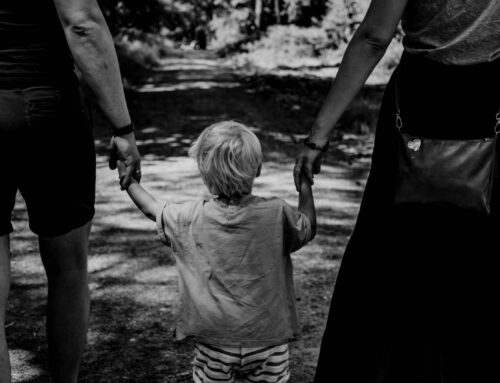In my last blog post I discussed building gratitude into our daily lives and the benefits to our health and well-being. Thoughts of gratitude can be a tool for coping with stressful events and an antidote to the weight of negative thinking. Divorce is a very stressful life event, wrought with loss, challenges, and conflicts. Some of those challenges and conflicts may come in the form of working with your children’s other parent. Since we know that negativity and conflict between parents hurts kids, I am suggesting that thoughts of gratitude toward your children’s other parent might just help soften the negativity and conflict. It might help your children to know that you recognize value in their other parent.
How can an “attitude of gratitude” help your co-parenting relationship? It might help you offer a thank you or express appreciation. It might help you remember something the other parent does right the next time you feel critical of them. Only seeing the negative about the other parent makes it harder to show respect, be kind, and work together. Being willing to notice the positive, even during times of stress and conflict, reminds us to have a balanced view. You may find things about the other parent frustrating, but he/she is not all bad. Consider viewing the other parent through the eyes of your children. What do they value? What might they wish you appreciated more? Try noticing positive traits, looks, or qualities passed along to your children, things he/she teaches them, ways in which they are a good parent, or helpful ways he/she has interacted with you. How wonderful would it be if your children heard you say “you’re just like your father” and you meant it as a compliment? For example:
“You’re smart like your mother.” “You have a great sense of directions, just like your Dad.” “You’re lucky you got your father’s height.” “Your Mom is very creative too.”
Make it a regular practice, as part of a general gratitude practice, to look for the positive in the other parent. A kinder, gentler you may show up the next time you are interacting with each other. That’s good for building an effective working relationship with your co-parent, which is good for your children.
Go ahead, dare to be grateful for things about your children’s other parent. It won’t cost you much and the return on investment could be great! I’ll start with a partial list of things I appreciate about my kids’ Dad…
Now it’s your turn. I hope my list gets you thinking. What can you be grateful that your children’s other parent brings to their lives and yours? My challenge to you is to come up with your own co-parent gratitude list. What a great gift to give to your children for the holidays. I wish you and your family peace and gratitude this holiday season!





